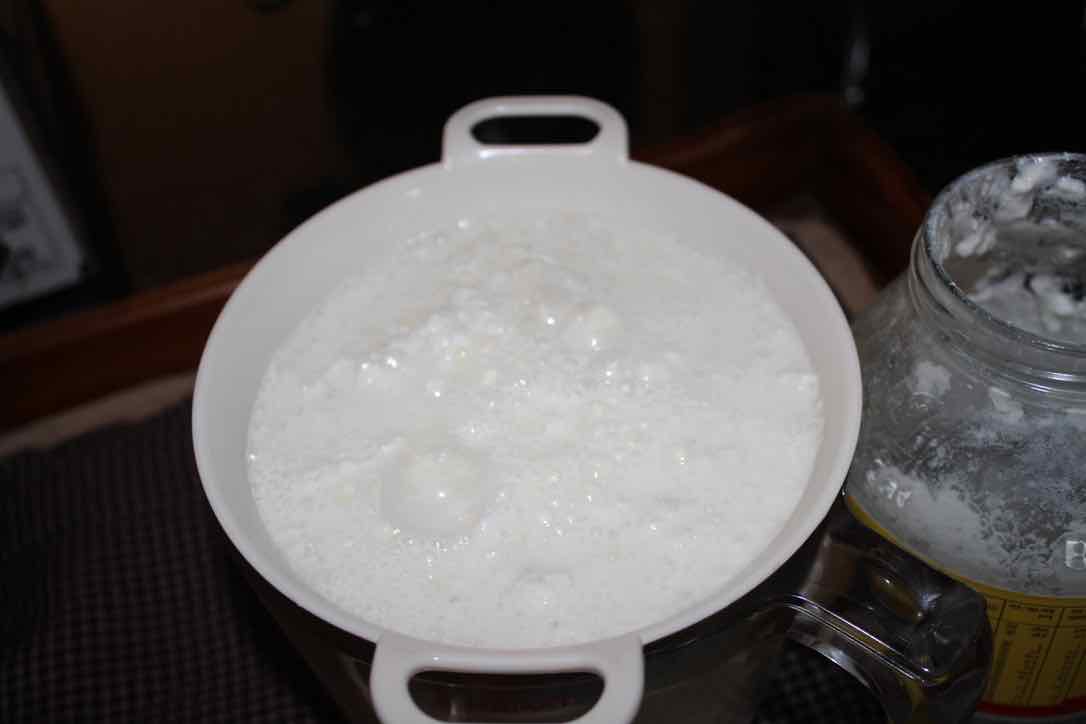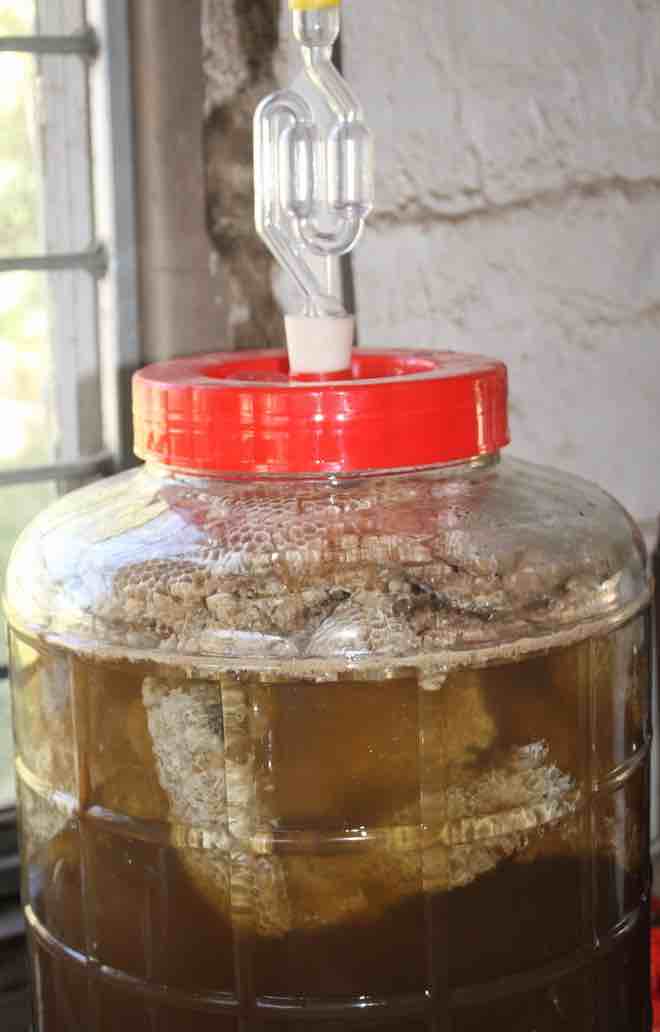- Bernard Preston homepage
- Our green kitchen
- The Gut-lung Connection and the Coronavirus
The gut-lung connection and the coronavirus
The gut-lung connection and the coronavirus establishes that there are proven things we can do to help prepare our bodies for the next pandemic; and exposure to all bugs in general.
I have written before about the importance of probiotics in human health. In short, there should be an astonishing 2kg of bugs in the intestines, mostly in the colon; they play a widely varied role in immunity, assimilating nutrients and producing metabolites that have functions in distant organs such as the brain and the skin.
And so in the literature scientists are now investigating subjects such as the Gut-Brain and lung connections; those bugs enable the colon to produce serotonin and dopamine, for example, two extremely important neurotransmitters that impact on our mental and physical wellbeing.

But the influence of these friendly bacteria goes far beyond the brain and the skin. These scientists have discovered that there is another community living in our lungs; and they all talk to each other via the lymphatics and blood vessels.
In those frightening days of the coronavirus assault on humanity, there were few more important things, after washing of hands and social distancing, to help prepare our bodies for a potential exposure to someone carrying the bug.
A divergent microbiome not only improves our general immunity. Since this virus is in essence a lung-infection, having a vibrant and strong community established in our alimentary canals will help outweigh the invaders simply by their numbers.
The problem of course is that in these days of many antibiotics, both prescribed and from low doses in our foods, most of us do not have strong microbial communities dwelling in our organs.
Add to that the chemicals we consume daily that have a very detrimental effect on this community, it is little wonder that many diseases of the alimentary canal, brain and lungs are so prevalent in society today; and other organs.
The artificial-sweeteners in colas incidentally top the list of chemicals that destroy these friendly bugs; they are probably worse than sugar, though that is debatable.
So what can we do to help recolonise a healthy microbiome? One can take pills and they do have a place but the big problem is that they provide a limited and narrow-spectrum of bugs; scientists are calling rather for a very diverse community in our bodies.
Making a probiotic in your own kitchen is not only vastly cheaper but supplies a far more diverse range of friendly bacteria, yeast cells and viruses to our colons. Kefir, for example has over 30 different strains of bugs in it.
Making our own probiotic foods used to be a part of almost every culture but gradually the industry has convinced us they will do it better, which of course they cannot. They go off quite quickly so manufacturers have to add various chemicals to preserve them, destroying the very benefits they bring; or they are pasteurised.
One can think of maas, sauerkraut and kimchi as three examples; even brewing your own beer and wine.
"Bacteria-fighting drugs, especially penicillin, sulfonamides and cephalosporins can damage your kidneys if you use them too often."
- WebMD
I have written before of how kefir, a kind of very strong yoghurt, cured my fifteen-year stomach pain in one week. I had a proven stubborn helicobacter infection that did not respond to antibiotics; overwhelming it with billions of friendly bugs did wonders.
That of course is just a medical anecdote, of little value but there is a huge scientific literature focused on the importance and influence that a diverse microbiome in the colon has on our brains, vaginas and armpits for example.
Brewing
Brewing our own beer and wine does also contribute to the diverse community of creatures that dwell harmoniously in and on our bodies; and even exotic drinks such as mead.
I have lamented before about how our hearts and minds have been captured by television and social media. It would seem we would rather watch others having fun than enjoying ourselves to the full.

Alcoholic drinks of our own not only add to the enjoyment of life but supply an even more diverse normal flora, contributing further to the gut-lung connection and the coronavirus.
The science is strong about what a sedentary life does to our wellness.
Our cyan zone strategy is how to avoid a life of inflammation and pain; and contribute to the health of the planet.
The gut-lung connection and the coronavirus
The gut-lung connection and the coronavirus means real value in kefir.
If you are interested in the science or just skeptical then google "frontiers of science; microbiome."[1]
You could drink kombucha tea or brew mead[2] but we make kefir; it takes about five-minutes, every morning initially and then a maintenance dose perhaps once a week or less.
You can get the starter from a health food store and instructions here on how to make kefir. It is also one of the best sources of calcium for the prevention of osteoporosis by the way.
It will in some small way give your lungs added protection from an exposure to the coronavirus and many of the other flu-strains that attempt to infect us every year.
Pesticides
Pesticides too have a very detrimental effect on the microbiome; and cause cancer, even worse than smoking for those like farmers with high exposure[3].
Greater wellness comes in part from finding true organic food free from all pesticides; or becoming a gardener. The influence of a healthy gut on the lungs and other organs is profound.
When browsing use right click and Open Link in New Tab, or you may get a bad gateway signal.
Newsletter
Our newsletter is entitled "create a cyan zone" at your home, preserving both yourself and Mother Earth for future generations; and the family too, of course. We promise not to spam you with daily emails promoting various products. You may get an occasional nudge to buy one of my books.
Here are the back issues.
- Lifestyle and ideal body weight
- What are ultra-processed foods?
- Investing in long-term health
- Diseases from plastic exposure
- Intensive lifestyle management for obesity has limited value
- A world largely devoid of Parkinson's Disease
- The impact of friendly bacteria in the tum on the prevention of cancer
- There's a hole in the bucket
- Everyone is talking about weight loss drugs
- Pull the sweet tooth
- If you suffer from heartburn plant a susu
- Refined maize meal and stunting
- Should agriculture and industry get priority for water and electricity?
- Nature is calling
- Mill your own flour
- Bake your own sourdough bread
- Microplastics from our water
- Alternative types of water storage
- Wear your clothes out
- Comfort foods
- Create a bee-friendly environment
- Go to bed slightly hungry
- Keep bees
- Blue zone folk are religious
- Reduce plastic waste
- Family is important
- What can go in compost?
- Grow broad beans for longevity
- Harvest and store sunshine
- Blue zone exercise
- Harvest and store your rainwater
- Create a cyan zone at your home
Did you find this page interesting? How about forwarding it to a friendly book or food junkie? Better still, a social media tick would help.
- Bernard Preston homepage
- Our green kitchen
- The Gut-lung Connection and the Coronavirus
Address:
56 Groenekloof Rd,
Hilton, KZN
South Africa
Website:
https://www.bernard-preston.com